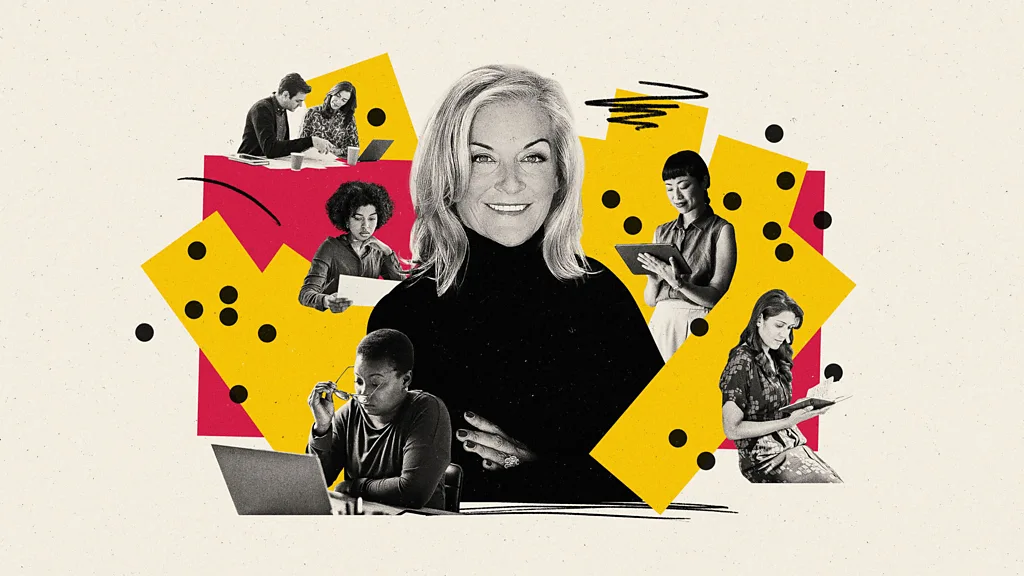
It’s like Back to the future.. Tesla Cybertruck turns heads in Seattle as GeekWire test drives futuristic EV
March 26, 2024
Maximizing IT Efficiency: How Alpha’s Certified Technicians Empower Your Business
March 29, 2024Karyn Twaronite tells the BBC that her first career step as an accountant at professional-services firm Ernst & Young wasn’t “sexy or exciting”. Yet it’s paid dividends. Throughout more than 30 years – all spent at Ernst & Young, now EY – Twaronite has climbed the ranks, rotating through different departments. When she found her way into talent and human resources, she discovered her niche.
Today, as EY’s global vice chair of diversity, equity and inclusiveness, she oversees DEI programmes for 400,000 people across 150 countries. The group, says Twaronite, is around 80% Gen Z and millennial workers, average age about 27. “That keeps us on our toes innovation-wise,” she says. For Twaronite, that innovation is essential, as she sees EY’s work in the DEI space as a core component of business operations.
Throughout her tenure, she’s taken strides to incorporate programmes for an often-underemployed group: neurodivergent workers. “We really wanted to invest in that space,” she says. “It allows us for a to have an even bigger playing field of talent.” Today, EY operates 23 Neurodiverse Centers of Excellence (NCoE) across the world, designed to support workers with autism, dyslexia, ADHD and other cognitive differences. These neurodiverse employees – who do high-level work across AI, blockchain, data analytics and more – perform their roles in an accommodating environment with tailored professional development.
These initiatives are all part of that commitment to innovation. “I was tasked with looking at the future, and what would we need and where might we be short,” she tells the BBC. “And this talent base has really been extremely beneficial for us, because all tides rise together on this population.”
During Neurodiversity Celebration Week, Twaronite talks about opening opportunities for neurodiverse talent to create win-wins for both companies and their workers.
What tangible benefits has EY seen with a robust DEI program?
We treat it like a business function, no different than how you measure and monitor and hold accountable and look at results. We treat DEI internally the same way we treat client services on sales and pipeline. We are very deliberate, intentional and have a methodology. We love data analytics, and I run all kinds of analytics with our experts. We have teams all over the world, and the more culturally diverse and inclusive those teams are, the better results we see.
It’s not only good for business – it’s also good for employees. There are very few things that are a win-win for a company and for their employees. This is one of them.
Our clients ask us about [building diverse and inclusive teams] every day – and they demand it, which I love. They don’t want a homogeneous group of people trying to solve their problems. They come to us because we have many different perspectives from around the world.
You’ve made a significant commitment towards inclusion for neurodiverse talent. How did that start?
We built our first Center for Excellence in Philadelphia in 2016. We put out a job posting for 15 spots we reserved for neurodiverse applicants. We had people from all over the United States come to interview.
These were people with phenomenal degrees and educational experiences, but they weren’t necessarily hired for the jobs that they wanted. One gentleman had a PhD from MIT, and applied for a teaching job, but he was given a janitorial staff position instead. He drove through the night from California to be able to interview for this job in Dallas.
We’ve since expanded our Neurodivergence Centers of Excellence across 10 countries and in 23 cities. The reality is that the focus on neurodivergent talent has been tremendously beneficial for business. Our neurodivergent employees have a 92% retention rate.
What were some of the lessons you took away from that initial class of 15?
We hired 15 amazing people. Amazing news! But EY achieved gender parity about 20 years ago, and looking at these hires, for the first time ever, I said, ‘where are the women?’
When we looked back, we realised no women had even applied. Part of this was structural. Men are more likely to receive an autism diagnosis as a child. And boys are diagnosed two-times more with dyslexia. Many women may not even know that they have such a diagnosis.
But we also had to remove some barriers in our recruiting materials. We had to use more gender-inclusive language in our listings, for instance. This is not an automatic thing. It doesn’t just happen. You have to be very intentional about the talent you seek out. Every class that we hired after that has had gender parity, but it did require much more intentionality on our part to speak specifically to this population. There was a whole pool of talent in front of us, it just wasn’t easily accessible. We had to be proactive.
How are you able to ensure neurodivergent women are supported if they aren’t formally diagnosed as often as men?
We need to prove every day to this talent base that they are valued, and that we want them to have their careers here. And it’s important to remember that neurodiverse women are women first.
We benefit from having gender balance across all teams, and that’s been good for us for 20 years. We know that companies that are more gender diverse are safer, better run and better for everyone. It’s the same as it relates to adding the neurodivergence segment of the identity.
I think five and 10 years ago in the business world, neurodivergent people and particularly women kind of wanted to conform and they wanted to hide. That doesn’t mean some people don’t still want to do that. But conformity is no longer in, and people want to show their skillset. And this is a way in this environment for the next five plus years, to be able to show that you have greater data analytical skills or greater technology skills, or address problem solving in a different way. This point of distinction can actually be an advantage for women in this space.
What would you say to other leaders about hiring diverse talent?
The reality is it is a long-term proposition. So, if you’re committed to it as a leadership team authentically, and you’re going to hold yourselves accountable to that, then you are going to reap the business benefits. There was a recent study that found 57% of Fortune 500 companies are actually investing more in DEI, but they might not be talking about it as much. It’s up to them whether they want to share or not.
But these programmes are good for business, and it’s not a flash in the pan. You have to make sure that your policies and processes are inclusive so that when you when you acquire this tremendously diverse talent from a whole host of different dimensions, they actually have an opportunity to succeed and thrive.
And from a neurodivergence perspective, many members of Gen Z have already been diagnosed or self-identify as neurodiverse. Businesses need to adapt to this being a norm in their workplace. And I would also say it’s really smart for business, because it’s going to be a norm in the consumer base and the customer base.
—
If you liked this story, sign up for The Essential List newsletter – a handpicked selection of features, videos and can’t-miss news delivered to your inbox every Friday.




